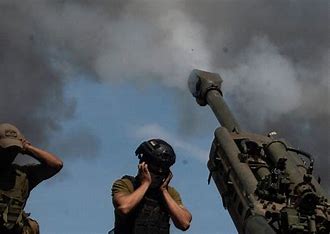When mention is made of China, more accurately named the People’s Republic of China, the entire Chinese state comes into view, even when the context is only about policy. In reality, the PRC is in the grip of the Communist Party of China (CPC), otherwise called the Chinese Communist Party (CCP). Within the 100-million plus members of the CCP is the leadership element, comprising about a hundred thousand of the members. Within that is the higher leadership and over that operates the top leadership in both the central as well as provincial level. A fraction of these comprise the top leadership, with the CCP General Secretary at its apex. The General Secretary operates through an Office of the General Secretary, and it is through this office that Xi controls policy in China. The personality of the General Secretary matters, for he (there has never been a woman, even in the Standing Committee of the Politburo) is the controlling voice within the CCP and hence the control of the entire country. Unlike Mao, who sought absolute power, Deng Xiaoping devolved a lot of authority to trusted officials picked by him. Unlike his predecessors Jiang Zemin and Hu Jintao, who both devolved a lot of authority down the line of command, Xi is similar to Mao in that he has concentrated power in his own hands. When we talk of China while referencing policy therefore, what we are talking about is Xi’s China. And it is in the hands of Xi that the present and future trajectory of the PRC rests.
The Cultural Revolution initiated by Mao in the 1960s was precisely that, a revolution intended to transform Chinese culture. Countless irreplaceable artefacts and monuments of the past were obliterated, and acts of cruelty were widespread.
Ancient Chinese lore has it that Emperors in past dynasties were cruel, and were feared rather than loved. Mao, the Red Emperor, proved no different. He even made the very mention of Confucius a cause for punishment, and sought to erase any vestige of Confucius Thought. Many regarded traditional Chinese culture and values as the reason why the country was dominated by foreigners from Europe and the US for a century. The CCP itself was founded in 1921 to escape the fetters of traditional culture and “liberate” the Chinese people from such bondage. Certainly there has been a significant change in the attitudes of the Chinese people after enduring the Cultural Revolution, which was declared a success by Mao and shut down in 1976, ten years after it was launched in 1966. By that time, Mao had established cordial ties with the US, a relationship based on their mutual antipathy to the USSR. He had humiliated Deng Xiaoping many times, even causing physical harm to Deng’s son, but never executed him in the way he did many other colleagues of his. Deng made a comeback by 1979, and set the country on a course that led to double digit growth and prosperity for millions. Xi has moved away from Deng Thought, and claims to follow and indeed to improve Mao Thought by Xi Thought. He is supremely confident, having come a long way despite often adverse circumstances. Which is why he has been more ambitious in aggressive intent as well as expansionist forces. Which is why the Quad in its present membership needs to inter alia be made a mutual defence pact of the other three partners joining in, should any one of the four be attacked in the Indo-Pacific by the PRC. The path to peace is through deterrence created by unity within the Quad, and the risk of war comes about when a member state of the Quad stands alone in a conflict. Such a situation took place when India was attacked by the PRC at Galwan in 2020. The Indian Army showed its mettle against the PLA in a way that was missing during the 1962 border war with China, in which too India stood alone.
War is avoided by strength through unity
- Advertisement -

